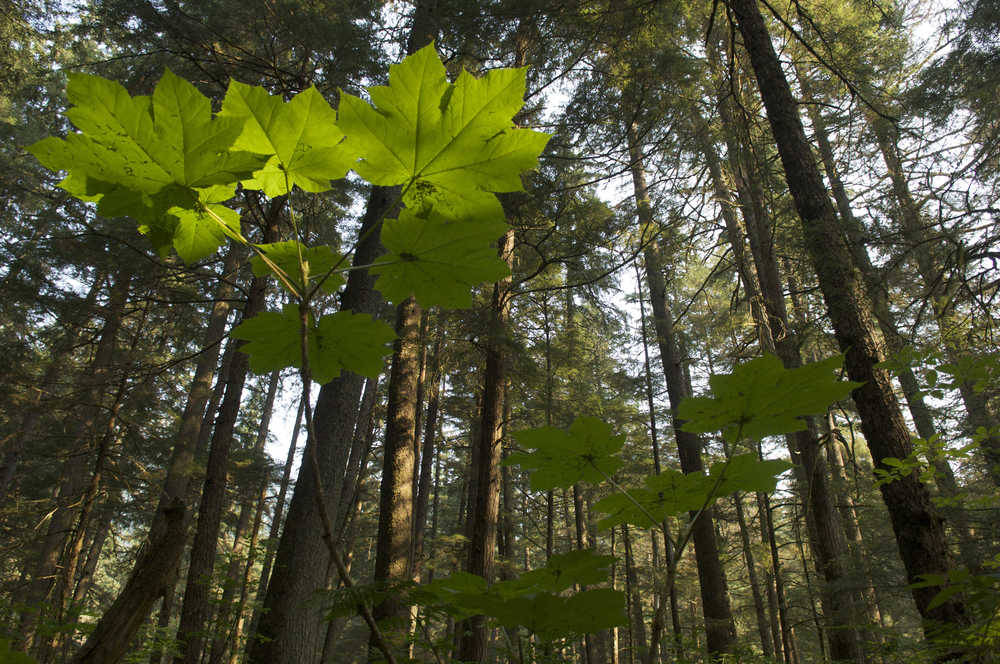U.S. Sens. Lisa Murkowski and Dan Sullivan with Congressman Don Young are again showing how out of touch they are with the current realities on the Tongass. In a letter last month, the delegation urged keeping a controversial amendment that Young squeezed into the House Farm Bill that exempts Alaska’s two National Forests from the national Roadless Rule — a rule that prevents wasteful and unnecessary logging roads.
With typical bluster, the delegation asserts that the Roadless Rule has been “disastrous for the forest products industry [on the Tongass].” As the State of Alaska’s own economic experts explained 15 year ago, Tongass timber is uncompetitive because of permanent and fundamental changes in global timber markets, high labor costs, distance from markets, and less expensive substitutes. No amount of wishing or taxpayer subsidies can alter the economic reality facing today’s Tongass timber industry — they cannot sell Tongass logs at a price high enough to cover their normal operating costs. This is why no one bid on a proposed Tongass timber sale on North Kuiu Island last fall, even after the agency spent over $3 million taxpayer dollars building roads for the industry and OK’d the export of nearly all the sale’s logs without any local manufacture. It also explains why Sealaska seized the opportunity earlier this year to make millions of dollars selling carbon credits on California’s cap-and-trade market by preserving thousands of acres of its old-growth forest for the next 110 years.
The Roadless Rule is not the reason why today’s timber industry represents far less than 1 percent of Southeast Alaska’s jobs. For the past 65 years, the industry systematically clearcut nearly 1 million acres of the biggest and easiest to reach old-growth forest. Today, over 5,000 miles of logging roads crisscross the Tongass National Forest, fragmenting valuable wildlife habitat, threatening salmon by blocking fish passage, and serving as the primary source of sediment into fish streams. Spending millions to build roads in Tongass roadless areas makes no economic sense, particularly given the agency’s existing multi-million dollar road maintenance backlog.
Alaska’s delegation claims that “[t]he Roadless Rule is sharply impeding both renewable energy and responsible mining.” To borrow a phrase from Mark Twain, this claim is “imperfectly informed.” First, the rule does not prohibit road construction related to mining and hydro development. The archaic, yet still powerful General Mining Law of 1872 guarantees reasonable access for the development of valid mining claims. As of January 2018, of the 55 projects approved in Alaska Roadless areas by the Forest Service, 23 involved mineral exploration activities and most received approval from the Forest Service’s Chief within a month of their submission. Approved projects included exploration activities at the Bokan Mountain venture in both 2012 and 2014. The delegation’s letter claims that the Roadless Rule “sharply imped[ed]” development at Bokan Mountain, but this venture’s biggest impediment is its low economic feasibility.
Additionally, over the past eight years, the Forest Service approved nine projects in inventoried Roadless areas related to hydropower and other energy development, as well as two transmission lines — the Swan-Tyee and Kake-Petersburg Interties. With Southeast Alaska’s sparse population and multiple, small load centers separated by steep topography and marine waters, the costs associated with construction and expansion of storage and transmission facilities typically exceed the resulting public benefits. Consequently, developers routinely build power lines in Southeast Alaska without roads because the high cost of building and maintaining roads makes them uneconomical.
Lastly, the delegation claims, “even tourism and fisheries are negatively impacted by the significant access restrictions [the Roadless Rule] imposes.” Far from harming these sectors of the economy, they have thrived under Roadless Rule protections. Together, tourism and fisheries account for over 40 times the number of jobs and more than 27 times the total earnings that timber contributes to our economy.
The Alaska delegation needs to wake up to the new realities in Southeast and stop pushing timber-first policies that harm our forest, communities and economy.
To help keep the Tongass protected by the Roadless Rule attend the upcoming public scoping meetings scheduled throughout Southeast Alaska this month. Check www.seacc.org for the latest on locations and times.
• Buck Lindekugel is an attorney for the Southeast Alaska Conservation Council. My Turns and Letters to the Editor represent the view of the author, not the view of the Juneau Empire.

